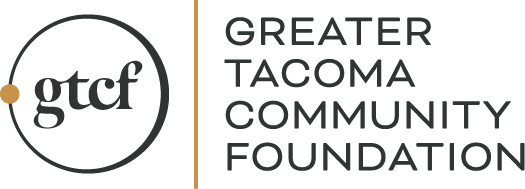
Community
14
An Opportunity for Impact Arrives at Age 72

Required Minimum Distributions offer an opportunity to make a tax-efficient philanthropic impact for the community.
A GTCF fundholder said, “A lightbulb went off!”, when he discovered a sometimes-overlooked opportunity to support a thriving community available after age 72 .
It isn’t traditionally seen as a milestone birthday, but age 72 can be reason to celebrate. That’s when Individual Retirement Account (IRA) holders must begin taking minimum withdrawals annually, known as a Required Minimum Distribution (RMD).
The RMD was a “taxable event” for this GTCF fundholder. IRA contributions that were tax-deferred when they were made are treated as ordinary income and subject to taxes as distributions. However, the RMD also offered this fundholder an opportunity to make a tax-efficient philanthropic impact for the community.
Any RMD amount, up to $100,000, can be designated as a Qualified Charitable Distribution (QCD). The funds go directly to an eligible charity, bypassing the owner of the account, and not counting as income for tax purposes.
Speaking anonymously, the fundholder found the opportunity to turn their RMD into a QCD put the situation in a whole new light, “We’d been taking the distribution and paying taxes accordingly for the last few years and hadn’t thought about it that carefully. GTCF urged us to consider a different scenario and it was a great idea for us.”
Stacey Guadnola, GTCF Director of Philanthropic Engagement, asked this fundholder, “What’s the change you want to see?” Together, they identified several local 501(c)3 organizations to receive grants through a QCD. Stacey added, “In an ideal world, there is a blinking light on age 72: You have this new opportunity to make an impact in your community.”
With the counsel of their Certified Public Accountant (CPA), Frost & Company, PLLC, the fundholder placed a $100,000 QCD in a designated fund at GTCF. A QCD cannot go into a Donor Advised Fund under current rules.
The Frost & Company CPA shared, “Turning your RMD into a QCD is a fairly simple strategy to make your charitable giving most tax-efficient.” Many people end up writing philanthropic checks after paying taxes on their entire RMD, simply because they aren’t aware of the opportunity.
The CPA explained that the QCD is not included in gross income and cannot be taken as a deduction, making the RMD-to-QCD strategy best for people who “are charitably inclined, don’t need all of their RMD to live on, and who are not itemizing deductions. If you do make a QCD, be sure to save your paperwork and submit it to your tax adviser so that it is correctly listed on your tax return.”
One of the recipients of the anonymous GTCF fundholder’s QCD was the Tacoma Rescue Mission. Duke Paulson, Executive Director, shared the difference this particular grant will have on our community, “This gift helps us to more than double the shelter space for homeless women in Pierce County!”
Having discovered the opportunity their RMD offers, GTCF’s anonymous fundholder has already earmarked another QCD for 2020, “Why wait? Why not work with GTCF in the early part of the year to put your money to work in a thoughtful manner when nonprofits can use it most, rather than pressuring yourself to make a decision at the end of the year?”
GTCF can assist with philanthropic contributions for community impact. Whether it’s a Qualified Charitable Distribution, a philanthropic fund, or even a donation directly to an organization, contact GTCF’s Philanthropy Team to get advice on how your gift can do the most good.
Resources
To make the best decisions based on your specific situation, consult a qualified tax professional.
- Bizrate: IRA required minimum distributions table
- Kiplinger: Smart Retirement: Avoid the 5 Biggest IRA RMD Mistakes
- Kiplinger: 10 Things Anyone Considering a QCD Should Know
- Forbes: The Best Way To Handle Required Minimum Distributions
This article was updated on January 30, 2020 to include changes for Required Minimum Distribution after the passage of the SECURE Act in December 2019
